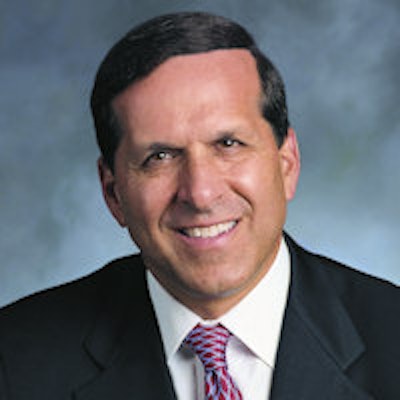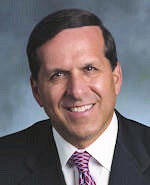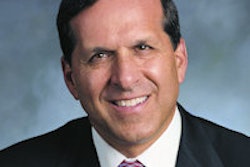
Dental transitions are complex transactions. They should be handled by an expert who specializes in this area. Unfortunately, many dentists rely on unqualified advisors, which can result in damage to the practice's reputation, lawsuits, and financial losses.
There are many reasons why dentists choose the wrong advisor. It could be an attempt to save money. Or a misguided belief that the transition is really a simple and clear-cut transaction. Maybe the person is a friend or an acquaintance and seems knowledgeable and capable. However, when the ownership of your practice is at stake, always go with the best qualified expert.
 Roger P. Levin, DDS, chairman and CEO of practice management consulting firm Levin Group.
Roger P. Levin, DDS, chairman and CEO of practice management consulting firm Levin Group.Here are three types of advisors who should not handle your transition.
No. 1: The family member
Uncle Fred may be a pretty good lawyer, but that doesn't mean he's qualified to handle a partnership agreement for your practice. Many dentists will choose a family member because they don't want to hurt the person's feelings and the price is right. Getting a service for next to nothing can be hard to resist. Unfortunately, the few bucks you save on the front end could cost you tens of thousands when the agreement falls apart.
No. 2: The friend
Your golf buddy Wally may be knowledgeable in a lot of diverse business areas, but it's doubtful that he's experienced in the intricacies of dental transitions. Of course, he may have your best interests at heart, but good intentions don't automatically translate into positive results. Unless Wally has successfully performed a dental transition, you should seek counsel elsewhere. By relying on an expert, you'll not only get the best advice, you'll also save your friendship.
No. 3: Someone your spouse knows
“It's always tempting to go with people you know when undertaking a complicated transaction.”
This comes with a whole different set of problems. First, your spouse's friend Terry from the gym probably isn't an expert in the transitions field. Second, you have two people now trying to move you in a direction you didn't want to go. Third, one of them is your spouse.
While Terry may be a nice person and a good friend of your spouse, you have to do what is right for your practice. Obviously, this situation is a delicate one. Emphasize to your spouse that you want the best expert available to handle the transition because a botched sale or partnership agreement would have devastating financial consequences for the both of you. When put in those stark terms, most spouses would agree that Terry from the gym might not be the best choice.
Conclusion
It's always tempting to go with people you know when undertaking a complicated transaction. You feel comfortable with them. They usually have your best interests at heart. However, if they are inexperienced, their lack of knowledge could have severe repercussions. When it comes to dental transitions, it's best to go with an expert in the field.
Roger P. Levin, DDS, is the chairman and CEO of practice management consulting firm Levin Group. To see his upcoming seminar schedule, click here. There's still time to save $100 on his Las Vegas seminar on December 11 and 12 when you register 30 days in advance.
The comments and observations expressed herein do not necessarily reflect the opinions of DrBicuspid.com, nor should they be construed as an endorsement or admonishment of any particular idea, vendor, or organization.



















